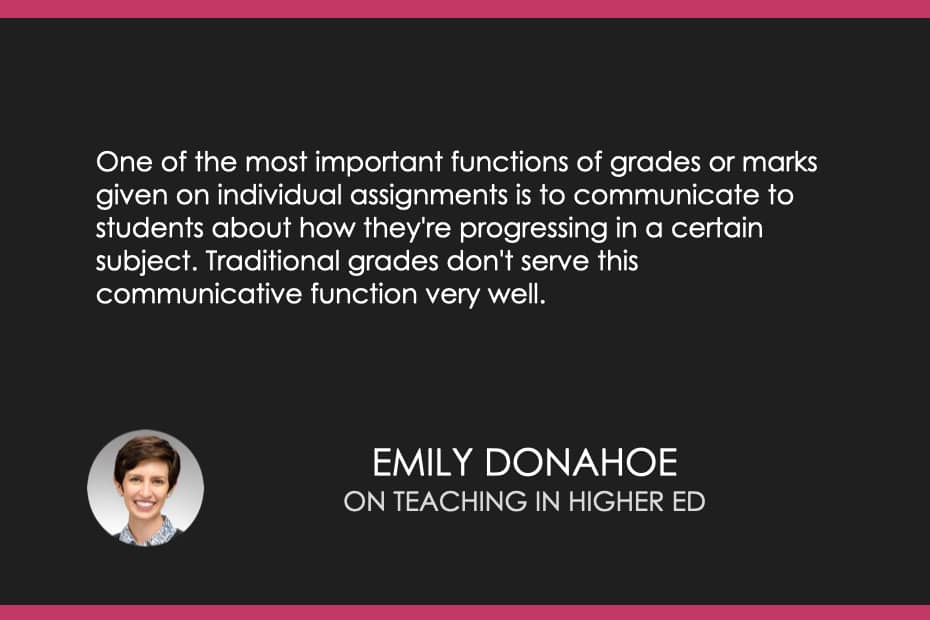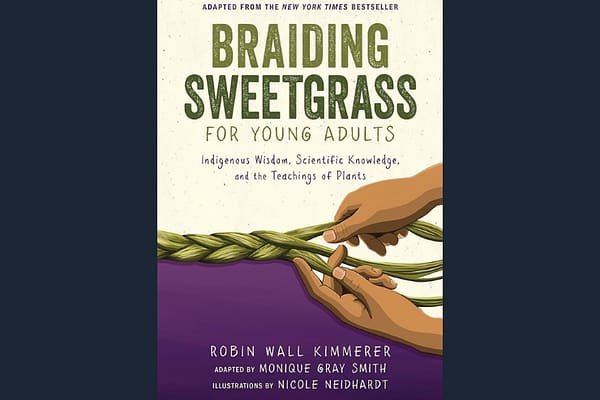Podcast (tihe_podcast):
Play in new window | Download | Transcript
Subscribe: Apple Podcasts | Spotify | RSS | How do I listen to a podcast?
Emily Pitts Donahoe shares what we can learn about grades from an “emerging failure” on episode 588 of the Teaching in Higher Ed podcast.
Quotes from the episode

They introduced a framework that attempts to identify the common features of alternative grading for growth systems that are meant to prioritize student growth and student learning over just grades and performance.
-Emily Donahoe
Those four pillars are marks that indicate progress, reattempts without penalty, clearly defined standards, and helpful feedback.
-Emily Donahoe
One of the most important functions of grades or marks given on individual assignments is to communicate to students about how they're progressing in a certain subject. Traditional grades don't serve this communicative function very well.
-Emily Donahoe




